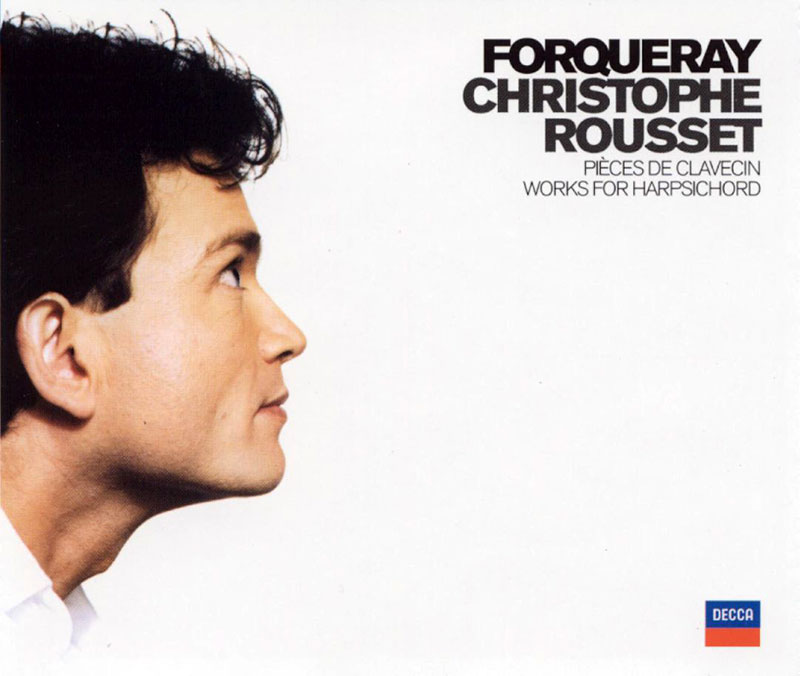Logowanie
Dlaczego wszystkjie inne nie brzmią tak jak te?
Chai Lang, Fan Tao, Broadcasting Chinese Orchestra
Illusive Butterfly
Butterly - motyl - to sekret i tajemnica muzyki chińskiej.
SpeakersCorner - OSTATNIE!!!!
RAVEL, DEBUSSY, Paul Paray, Detroit Symphony Orchestra
Prelude a l'Apres-midi d'un faune / Petite Suite / Valses nobles et sentimentales / Le Tombeau de Couperin
Samozapłon gwarantowany - Himalaje sztuki audiofilskiej
PROKOFIEV, Stanislaw Skrowaczewski, Minneapolis Symphony Orchestra
Romeo and Juliet
Stanisław Skrowaczewski,
✟ 22-02-2017
BARTOK, Antal Dorati, Philharmonia Hungarica
Dance Suite / Two Portraits / Two Excerpts From 'Mikrokosmos'
Samozapłon gwarantowany - Himalaje sztuki audiofilskiej
ENESCU, LISZT, Antal Dorati, The London Symphony Orchestra
Two Roumanian Rhapsodies / Hungarian Rhapsody Nos. 2 & 3
Samozapłon gwarantowany - Himalaje sztuki audiofilskiej
Winylowy niezbędnik
ClearAudio
Cartridge Alignment Gauge - uniwersalny przyrząd do ustawiania geometrii wkładki i ramienia
Jedyny na rynku, tak wszechstronny i właściwy do każdego typu gramofonu!
ClearAudio
Harmo-nicer - nie tylko mata gramofonowa
Najlepsze rozwiązania leżą tuż obok
IDEALNA MATA ANTYPOŚLIZGOWA I ANTYWIBRACYJNA.
Wzorcowe
Carmen Gomes
Celebrating the art and spirit of music - vol. 5 - Reference Songs
- CHCECIE TO WIERZCIE, CHCECIE - NIE WIERZCIE, ALE TO NIE JEST ZŁUDZENIE!!!
Petra Rosa, Eddie C.
Celebrating the art and spirit of music - vol. 3 - Pure
warm sophisticated voice...
SAMPLER - STS DIGITAL, Gregor Hamilton
Celebrating the art and spirit of music - vol. 2 - Love songs from Gregor Hamilton
...jak opanować serca bicie?...
SAMPLER - STS DIGITAL
Celebrating the art and spirit of music - vol. 1 - Leonardo Amuedo
Największy romans sopranu z głębokim basem... wiosennym
Lils Mackintosh
Celebrating the art and spirit of music - vol. 4 - A Tribute to Billie Holiday
Uczennica godna swej Mistrzyni
BACH, RAMEAU, CHERUBINI, GLUCK, HANDEL, Otto Klemperer
4 Orchestral Suites (the 1954 recordings)
- 1. Suite for Orchestra no 1 in C major, BWV 1066 by Johann Sebastian Bach
- Conductor: Otto Klemperer
- Orchestra/Ensemble: Philharmonia Orchestra
- Date of Recording: 11/1954
- 2. Suite for Orchestra no 2 in B minor, BWV 1067 by Johann Sebastian Bach
- Conductor: Otto Klemperer
- Orchestra/Ensemble: Philharmonia Orchestra
- Date of Recording: 11/1954
- 3. Suite for Orchestra no 3 in D major, BWV 1068 by Johann Sebastian Bach
- Conductor: Otto Klemperer
- Orchestra/Ensemble: Philharmonia Orchestra
- Date of Recording: 11/1954
- 4. Suite for Orchestra no 4 in D major, BWV 1069 by Johann Sebastian Bach
- Conductor: Otto Klemperer
- Orchestra/Ensemble: Philharmonia Orchestra
- Date of Recording: 11/1954
- 5. Concerti grossi (12), Op. 6: no 4 in A minor, HWV 322 by George Frideric Handel
- Conductor: Otto Klemperer
- Orchestra/Ensemble: Philharmonia Orchestra
- Date of Recording: 1956
- 6. Iphigénie en Aulide: Overture by Christoph W. Gluck
- Conductor: Otto Klemperer
- Orchestra/Ensemble: Philharmonia Orchestra
- Date of Recording: 1963
- 7. Anacréon: Overture by Luigi Cherubini
- Conductor: Otto Klemperer
- Orchestra/Ensemble: Philharmonia Orchestra
- Date of Recording: 9/28/1960
- Notes: This selection is preceded by Otto Klemperer's spoken instructions to the orchestra from the recording session.
- 8. Gavotte variée by Jean-Philippe Rameau
- Conductor: Otto Klemperer
- Orchestra/Ensemble: New Philharmonia Orchestra
- Date of Recording: 1968-69
- Otto Klemperer - conductor
- BACH
- RAMEAU
- CHERUBINI
- GLUCK
- HANDEL
Nawet teraz, 38 lat po śmierci Klemerera członkowie brytyjskich orkiestr grają według standardów ustanowionych przez tego genialnego dyrygenta. Człowiek, który na samym początku kariery zaimponował Gustavowi Mahlerowi wykonując jego scherzo z pamięci. Prowadził orkiestry w Los Angeles, Berlinie, Nowym Yorku, Philadelphii, Londynie. W 1937 pomagał w reorganizacji Pittsburgh Symphony Orchestra. Był związany również z operami w Hamburgu i Berlinie. W wielu miejscach występował gościnnie. Niezwykła osobowość, niezłomny charakter. Nawet, gdy cierpiał na powikłania związane z guzem mózgu nie unikał twórczej pracy. W 1951 roku wypadek na lotnisku w Montrealu zmusił go dyrygowania z krzesła. Żeby udowodnić swoje kompetencje wynajął własną orkiestrę, która zagrała wybrane przez niego utwory w Carnegie Hall. Próba była udana, ale Amerykanie nie dali się przekonać - Klemerer powrócił więc do Europy gdzie nadal koncertował - we Włoszech, Szwajcarii, oraz Niemczech. Postać niezwykle barwna, ciekawa, co objawia się w jego nagraniach. Warto prześledzić tę historię. The suites date from the waning days of monophonic sound. It's big-band Bach, far removed from today's speculative recreations of period style, but also distant from the bloated Bach of the past. Klemperer, fairly lean and objective, still digs deeply into the music. The uncredited flutist in Suite No. 2 is touching. Overture movements here are appropriately grand and, while tempos are moderate (no break-dancing to these dance movements), Klemperer's rhythmic mastery keeps the music flowing. The Philharmonia, at its peak, plays superbly. Handel's Concerto Grosso, Op. 6, No. 4, is beefily affecting and the rest, in stereo, is very attractive, especially the robust Anacreon Overture by Cherubini, a white-hot performance whose horn whoops in the coda will blow you away. (Dan Davis) Although Klemperer eschewed the indulgences typical of Bach conductors from his generation, his 1954 Orchestral Suites are conceived on a grand and sonorous scale. Unlike the conductor's stereo remakes, however, the mono versions, for lack of a better word, swing. Each movement emerges with a kind of inner rhythm that never bogs down under its own weight. The contrapuntal textures are tellingly contoured, yet never sound overpointed or contrived. By contrast, the Handel Concerto treads a bit heavily, as do the Gluck and Cherubini overtures. The delicious Rameau transcription, recorded in Klemperer's 84th year, shows that the conductor could shed his severe demeanor and wield a light, delectable hand when he chose. A must for Klemperer-maniacs. (Jed Distler,ClassicsToday.com)


























